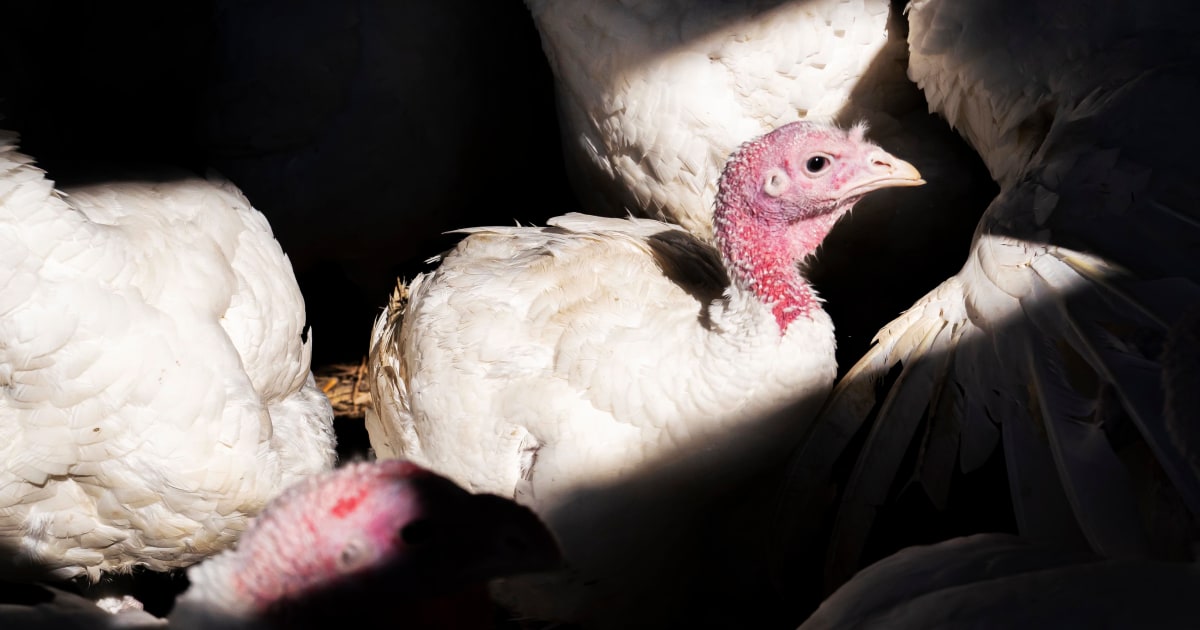The family wept, wiped their tears and held each other close Saturday evening as they shuffled through onlookers and past a 10-foot crucifix, heaped flowers and remembrances scrawled along Bourbon Street, marking the place where LaTasha Polk died in an instant of chaos and terror.
Just hours had passed since the family — Polk’s brother Raynell Bates, aunt Kim Polk, and several others — heard confirmation from the Orleans Parish coroner of what they’d feared for four days: the 47-year-old nursing assistant was among those killed in a driver’s horrific New Year’s Day rampage down America’s most famous party thoroughfare.
But after her death, they believed, LaTasha would have wanted the city to turn out in celebration — tinged with grief, perhaps, but not fear.
A hard worker from New Orleans’ Treme neighborhood, Polk knew what many New Orleanians told themselves this week: that dancing, singing and holding loved ones close can be a salve for bitter pain.

A candle is lit for LaTasha Polk, the last of 14 victims to be identified who were killed in a New Year’s Day attack on Bourbon Street, during a vigil for the victims Saturday, Jan. 4, 2025, for 14 people killed in a terror attack on New Year’s Day. (Staff photo by Scott Threlkeld, The Times-Picayune)
“She wouldn’t want us to be sad,” Kim Polk said Saturday at a vigil held for the 14 victims of Wednesday’s carnage.
“But at the same time, we can’t help but be selfish and want her back,” added Polk, who had traveled from Little Rock, Arkansas this week to help find her niece before the coroner’s call came. “For somebody to take her life and the lives of all these innocent people, it’s ridiculous.”
The vigil formed a spectacle befitting of the city LaTasha Polk called home, her family said. Hundreds of people packed the first block of Bourbon Street off Canal as a light drizzle fell from a gun-metal grey sky. A brass band played, and a second line wound its way onto Bourbon Street.
Before Wednesday morning’s violence, New Orleanians had already endured so much.
Residents were bracing for a summer of remembrance of Hurricane Katrina, which changed the city irrevocably 20 years ago and left enduring scars. The COVID-19 pandemic unleashed mass death in 2020. Hurricane Ida reopened Katrina’s wounds the year after that, and a surge of violent crime that came on the pandemic’s heels strained city resources. Not to mention problems that can feel intractable in a place built on precarious ground — cracked roads, powerful seasonal hurricanes and a rickety power grid.
There were signs that things were looking up. City leaders and first responders had helped engineer the nation’s largest reduction in violent crime. In a biannual University of New Orleans survey last fall, residents reported feeling optimistic about their city’s direction for the first time in years.

A brass band plays ‘Just a Closer Walk with Thee,’ during a vigil on Bourbon and Canal streets in New Orleans, Saturday, Jan. 4, 2025, for 14 people killed in a terror attack on New Year’s Day. (Staff photo by Scott Threlkeld, The Times-Picayune)
Then came the wee hours of New Year’s Day, when Shamsud-Din Jabbar, a 42-year-old man from Texas, whipped a rented Ford F-150 over a sidewalk and unleashed death on revelers packed into a few blocks of Bourbon Street.
The Bourbon Street attack lasted just seconds. But its impacts — besides the 14 killed, more than 30 were injured — seemed poised to reverberate in the city for years.
For LaTasha Polk’s family, the nightmare is two-fold: her brother, Printisis Polk, who was with LaTasha the moment she died, remains missing, they said. They were planning to drive to area hospitals on Sunday to try to find him.
“We called all the hospitals,” Bates said. “Nobody knows.”
Juxtaposing with the vigil’s somber display, the French Quarter’s typical cacophony was still audible Saturday. Officials reopened the street hours after the attack.
A street drummer’s notes overlaid the sound of an electric guitar as a band broke into song, and a strip club doorman beckoned passersby inside.
A person preaching through a loudspeaker from across Canal Street warned of a coming apocalypse. People carrying daiquiris looked surprised by the spectacle and craned their necks to get a view of the roses, candles and crosses stacked in remembrance of the dead.
The business-as-usual mood on Bourbon Street didn’t much bother Polk’s family, nor the family of Hubert Gauthreaux, 21, of Gretna, who was confirmed dead by Archbishop Shaw High School, where he graduated in 2021. In a nod to Gauthreaux’s love of the Chicago White Sox, his family arrived all wearing White Sox hats.
But other factors have complicated the grieving process. Local and national reporters have thronged to the French Quarter since the attack, seeking to document the fallout of one of the deadliest recent attacks in the United States — but, at times, injecting themselves into moments where families hoped for privacy.
“When you’re crying and grieving, you don’t always want people asking you questions with cameras and stuff,” said Vanessa LeBlanc, an aunt to Gauthreaux.

Clergy and others pray with the family of LaTasha Polk during a vigil on Bourbon and Canal streets in New Orleans, Saturday, Jan. 4, 2025, for 14 people killed in a terror attack on New Year’s Day. (Staff photo by Scott Threlkeld, The Times-Picayune)
Bates says he regrets not calling his sister more frequently before she died.
But he doesn’t blame the city — which has faced scrutiny over its security plans since the attack — for her death.
“Certain things like this, you can always blame the city,” he said. “But this was planned out. If it happened here, it could have happened anywhere, and you can’t stop it.”

A photo of Nicole Perez, a 27-year-old mother from Metairie, is posted on a cross during a vigil on Bourbon and Canal streets in New Orleans, Saturday, Jan. 4, 2025, for 14 people killed in a terror attack on New Year’s Day. (Staff photo by Scott Threlkeld, The Times-Picayune)





